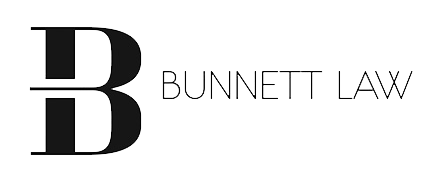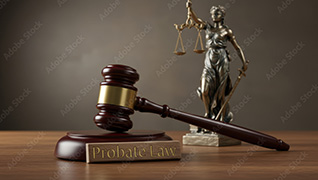
Law Office of John A. Bunnett, APC
(562) 927-1400

Estate Planning Advantage
The process of estate planning enables you to determine how your assets, medical care and family responsibilities will be managed after you die or if you become mentally incapacitated, and can avoid the expense and delay of Probate. It can allow you to plan and provide for family members with special needs to protect government benefits, and can provide a smooth and efficient method for distributing your Estate.
Trust Benefits
Guiding Your Legacy with Expertise and Empathy
At Law Office of John A. Bunnett, we combine legal expertise with care and compassion. We specialize in estate planning and estate settlement services, focusing on your family’s needs and values to insure a seamless and respectful transition of your or your loved one's legacy. Our approach is personal, understanding, and tailored to each client’s unique situation.
Our Process
Probate and Trust Administration
At Law Office of John A. Bunnett, APC, we recognize the emotional and legal challenges involved in estate settlement and probate. We are committed to helping you navigate these challenges through expert and compassionate guidance to ensure a smooth transition of your loved one’s legacy. We re experienced in all aspects of Probate Administration, Trust Administration and Special Needs Trusts.
We Can HelpA living trust and a standard will are both important estate planning tools, but they serve different purposes and offer distinct advantages. Here’s a detailed comparison highlighting the advantages of a living trust over a standard will:
1. Avoiding Probate
Definition of Probate: Probate is the legal process of validating a will and distributing a deceased person’s assets.
Advantage: A living trust allows assets to bypass probate, meaning they can be transferred directly to beneficiaries without court intervention. This can save time (often several months to over a year) and costs associated with probate fees. Example: If you pass away and have a living trust, your heirs can receive their inheritance quickly, whereas assets in a will may be tied up in probate.
2. Privacy:
Public Record: Wills become public documents once they go through probate, meaning anyone can access the details.
Advantage: A living trust remains private since it does not go through probate. The specifics of the trust, including assets and beneficiaries, are not disclosed to the public. Example: If you have a living trust, your financial matters and distribution plans remain confidential, protecting your family’s privacy.
3. Management of Assets During Incapacity:
Incapacity Planning: A living trust allows for the management of your assets if you become incapacitated. Advantage: The successor trustee can step in and manage the assets without the need for a court-appointed guardian or conservator. Example: If you are diagnosed with a condition that affects your decision-making, your trusted successor can manage your finances and distribute your assets according to your wishes.
4. Flexibility and Control:
Revocation: A living trust as well as a will can be altered or revoked as long as you are alive and competent.
Advantage: This flexibility allows you to make changes in response to life circumstances, such as marriage, divorce, or the birth of children.
5. Simplified Asset Distribution:
Direct Transfers: A living trust allows for seamless and direct distribution of assets to beneficiaries. Advantage: Beneficiaries can receive assets immediately upon the grantor’s death, without waiting for probate.
Ultimately, it may be beneficial to have both a will and a trust as part of your estate plan. Consulting with an estate planning attorney can help you determine the best option for your situation
A durable power of attorney (DPOA) is a key tool in estate planning that allows a trusted person (the agent or attorney-in-fact) to manage financial and legal affairs on behalf of the principal if they become incapacitated. Here’s how it helps in estate planning:
1. Ensures Continuity in Financial Management – The agent can handle bill payments, investments, taxes, and other financial obligations if the principal is unable to do so.
2. Avoids Guardianship or Conservatorship – Without a DPOA, family members may need to go through a costly and time-consuming court process to gain control over financial matters.
3. Protects Assets – The agent can manage and protect assets according to the principal’s wishes, ensuring that their estate remains intact for beneficiaries.
4. Allows Business Continuity – If the principal owns a business, the agent can oversee operations to prevent disruptions.
5. Facilitates Healthcare Decisions (if combined with a Healthcare POA) – While a financial DPOA doesn’t cover medical choices, having a separate Healthcare Power of Attorney ensures medical decisions align with the principal’s wishes.
A durable POA remains valid even if the principal becomes incapacitated, making it a vital document for long-term estate planning. Would you like guidance on drafting one?
The probate process in California involves several steps to ensure that a deceased person's estate is settled according to their wishes and state laws. Here’s an overview of the key steps involved:
1. Filing a Petition: The process begins by filing a petition for probate with the appropriate California Superior Court. This petition usually includes a copy of the deceased person's will (if there is one) and an estate inventory.
2. Notice to Heirs and Beneficiaries: Once the petition is filed, the court will typically issue a notice that must be sent to all heirs and beneficiaries, announcing the probate proceedings.
3. Appointment of Executor or Administrator: If the deceased left a will, the person named in the will as the executor will be appointed by the court. If there is no will, the court will appoint an administrator to handle the estate.
4. Inventory and Appraisal: The executor or administrator must compile an inventory of the deceased’s assets, which may include property, bank accounts, and personal belongings. An appraisal may be required for certain assets to determine their value.
5. Payment of Debts and Taxes: Before assets can be distributed to beneficiaries, any debts, claims, and taxes owed by the estate must be settled. This may involve notifying creditors and paying any valid claims.
6. Final Accounting and Closure: After debts and taxes are paid, the executor or administrator will prepare a final accounting of the estate’s assets and distributions, which must be submitted to the court. Once approved, the assets may be distributed and the estate can be officially closed.
It's important to note that probate can be a lengthy and complex process, often taking several months to years, depending on the size of the estate and whether any disputes arise. Consulting with an attorney experienced in probate matters can provide valuable guidance throughout the process.
If someone objects to the probate process in California, it can complicate and prolong the administration of the estate. Here’s how the objection process works, including common reasons for objections, the steps involved, and potential outcomes:
1. Common Reasons for Objections:
Will Validity: An interested party may argue that the will is not valid due to issues such as lack of proper execution, lack of testamentary capacity, or undue influence.
Executor Challenges: An heir or beneficiary may object to the appointment of the executor, claiming they are unfit or have conflicts of interest.
Beneficiary Rights: An individual may contest their share of the estate, arguing that they were wrongfully excluded or that the will does not reflect the decedent’s true intentions.
Improper Administration: An objection may arise regarding how the executor is managing the estate or if they are failing to adhere to legal requirements.
2. Steps to Object
Filing an Objection: The interested party must file a formal objection (often called an "opposition" or "contest") with the probate court. This document outlines the reasons for the objection and any supporting evidence.
Notification: The objector must notify the executor and all interested parties (other beneficiaries and heirs) about the objection.
Response from Executor: The executor has the opportunity to respond to the objection, either disputing the claims made or providing justification for their actions.
3. Court Hearing
Scheduled Hearing: The court will schedule a hearing to address the objection. All parties involved will be invited to present their arguments and evidence.
Burden of Proof: The objector generally has the burden of proof to establish their claims. This may involve presenting evidence, witness testimonies, or expert opinions.
Judge's Decision: After reviewing the evidence and arguments, the judge will make a decision regarding the objection. This could result in upholding the will, appointing a different executor, or other remedies.
4. Potential Outcomes
Objection Denied: If the court finds the objection to be without merit, the will remains valid, and the probate process continues as planned.
Objection Granted: If the court finds valid grounds for the objection, it may invalidate the will, appoint a new executor, order a modification of the estate distribution, or other outcome.